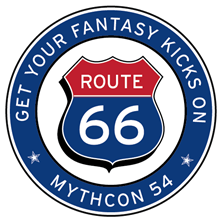Abstract
There is a broad stream of Christian interpretation of J.R.R. Tolkien’s fiction, especially The Lord of the Rings, which views it as the intentionally, essentially Christian work of an intentionally, essentially Christian author. This reductive, exclusivist approach does not do justice to the complex, generative interactivity between Tolkien’s faith, the faith of his readers (or lack thereof), and the text itself. Building on work by Veryln Flieger, Michael Drout, and Robin A. Reid, this paper interrogates how Christian Tolkien scholarship drafts Tolkien the human sub-creator to perform Foucault’s author-function by suppressing his contradictions and painting a figure whose life and works speak with a single, authoritative voice. Then, drawing on progressive Christian and Jewish hermeneutics and Tolkien’s own writings on intent and the freedom of the reader, it proposes a hermeneutics of Tolkienian inspiration that honors Tolkien’s Roman Catholic foundations, the sub-creative integrity of his secondary world, and the religious diversity of the readers who draw such deep wells of meaning from it. In so doing, it intervenes in ongoing conflict in the field of Tolkien Studies and Tolkien fandom more broadly over diverse interpretations of his fiction and the control of Tolkienian meaning.
Creative Commons License

This work is licensed under a Creative Commons Attribution-NonCommercial-No Derivative Works 4.0 International License.
ORCID ID
0009-0003-3762-0369
Copyright held by Artist


